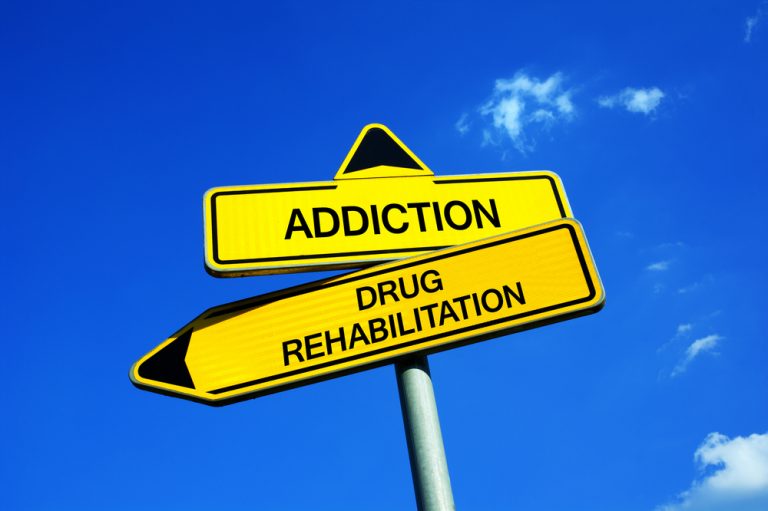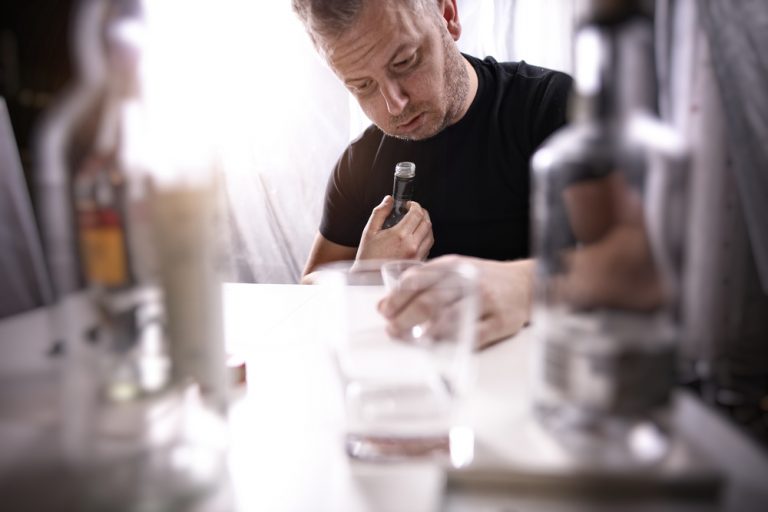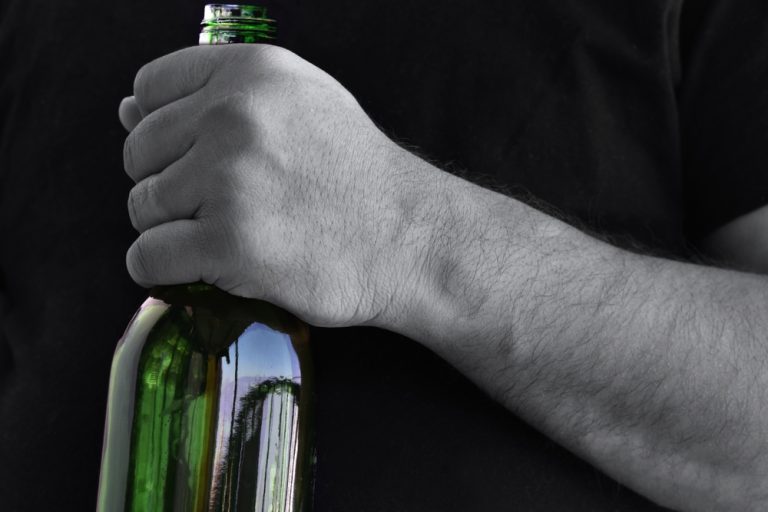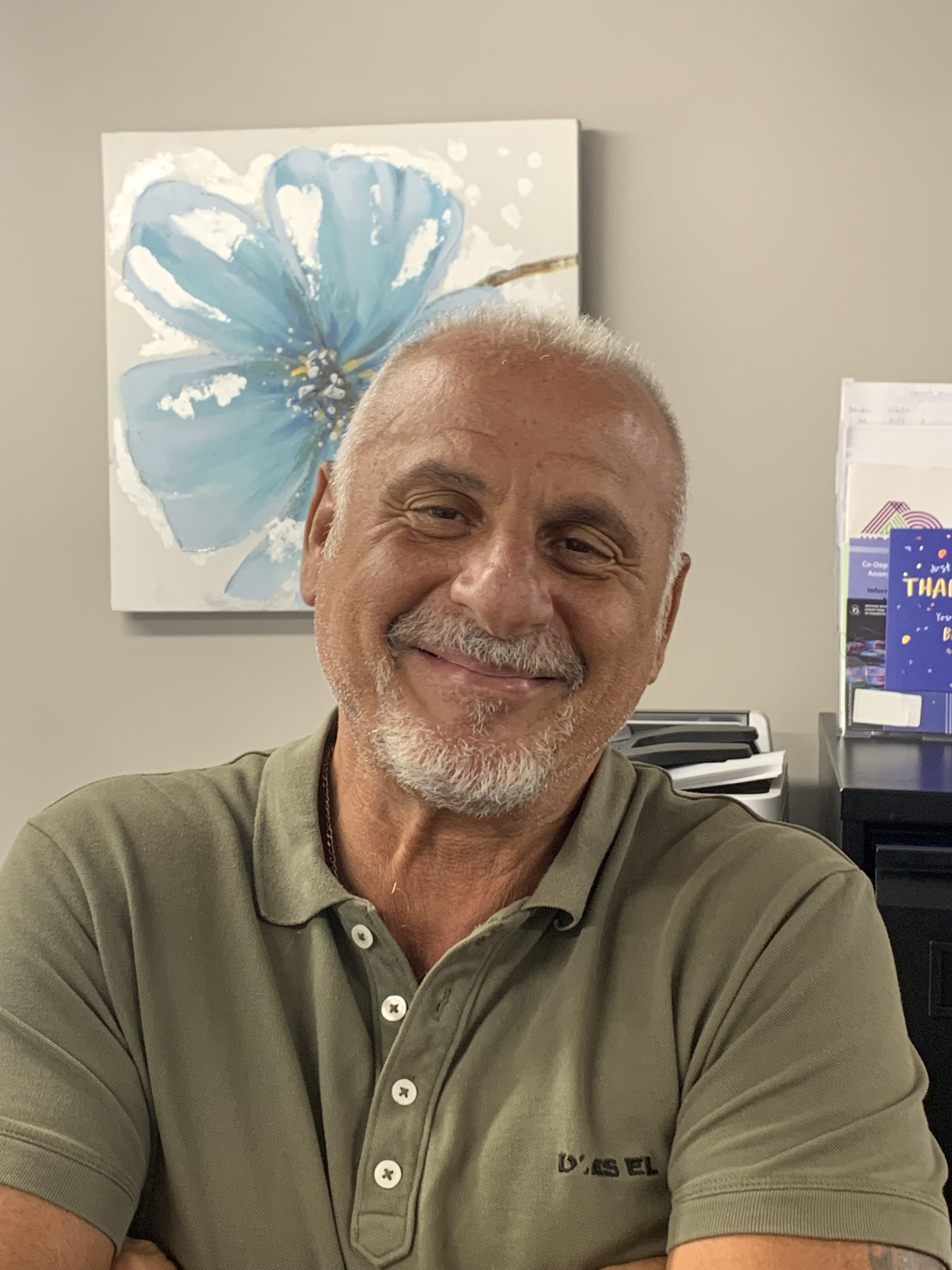Addiction to any substance can leave a devastating impact on your mind. Addictions often develop gradually, progressing from occasional use to a serious dependence that can be difficult to overcome without help. Drug addiction is a serious issue that often requires professional help and community support. It can trick you into thinking your dependency isn’t that hard to handle or that you don’t need rehab to recover. And honestly, many of us often fall into these drug and alcohol patterns, as under the influence, everything seems okay until time slips out of our hands.
If you’re reading this guide, chances are you or someone around you is looking for a signal. Suffering caused by addiction can make it feel impossible to break free without support. A signal to stop fighting this battle alone and seek professional help.
In today’s read, we’ll share with you 8 of the most obvious signs your soul is already begging you to go to rehab. But first, let’s begin this healing journey by understanding the role of rehabilitation centres in long-lasting addiction recovery.
Why Rehab?

Rehab is not about giving up or putting a full stop to your living. Instead, it is all about addressing and resolving the issues from within to live again with freedom and purpose. Rehabilitation centres contribute to your healing journey by offering:
A rehab facility provides a specialized environment where patients receive treatment for drug and alcohol addiction, including both alcohol rehab and alcohol treatment. These facilities offer a wide range of treatments and therapy options, such as therapy sessions, various therapies, and comprehensive treatment programmes tailored to individual needs. Rehab consists of multiple components, including counselling, family therapy, and specialized programs like equine therapy, to address addiction comprehensively. Treatment programmes may include medical detoxification, detox, and structured therapy sessions. Patients can receive treatment in different forms, including residential rehab, which is a time-based, structured program lasting from 4 to 12+ weeks. Maintaining focus during these therapies is crucial for achieving positive outcomes and long-term recovery.
Supportive Environment: Rehab offers a structured and safe living space where you can heal from addiction without being judged.
24/7 Medical Supervision: Rehabilitation centres have medical staff appointed to deal with complications right on the spot. This further makes your recovery journey comfortable as well as safe.
Personalised Treatment Plans: Not every individual’s addiction recovery journey might be the same. Rehab centres ensure that every person is treated as a separate entity by offering them personalised care for their unique needs.
Relapse Prevention Strategies: Experts at rehab centres know relapse can be a natural part of the recovery and thus plan effective strategies to avoid it.
Residential Rehab: Many rehab facilities offer residential rehab as a structured, time-based treatment option, providing patients with a focused environment for recovery.
The initial phase of rehab often involves detoxification and detox, which help the body eliminate harmful substances and manage withdrawal symptoms before further therapy begins.
Therapies in rehab include cognitive behavioural therapy (CBT), group therapy, music therapy, and art therapy, forming a holistic approach to recovery. Therapy can take many forms, and maintaining focus during these therapies is essential for success. Patients receive treatment tailored to their needs and can receive treatment for both alcohol rehab and alcohol treatment, as well as for drug and alcohol addiction.
The Recovery Journey: What Change Really Looks Like
Did you know that recovery from drug and alcohol addiction is not a straight line? Studies indicate that it’s actually a journey filled with both challenges and victories that can completely transform your life. Real change goes far beyond simply quitting drugs or alcohol—it’s about transforming your mindset, behaviors, and overall approach to everyday life, and you just have to understand this fundamental truth!
The recovery journey often starts with acknowledging the problem and making the brave decision to seek help, which can seriously impact your future in the most positive way. From there, intensive treatment in a rehab facility helps you address the root causes of addiction, including mental health issues and unhealthy coping mechanisms that have been ruining your well-being for way too long.
During rehab, you’ll learn new strategies to manage substance abuse and triggers, often through cognitive behavioural therapy (CBT). CBT is a powerful tool that helps patients understand the connection between their thoughts, feelings, and actions, empowering them to break free from destructive patterns that have been controlling their lives. As you progress, you’ll develop healthier habits, rebuild relationships, and regain control over your life in ways you never thought possible. Sustained recovery is about more than just abstaining from drugs or alcohol—it’s about creating a fulfilling, balanced life where you can thrive and flourish. Every step you take in treatment brings you closer to a healthier, happier you, and that’s something worth fighting for with everything you’ve got!
8 Clear Signs It Is Time to Go to Rehab!

Confessing you have an addiction and that you need professional help is often the most gut-wrenching phase for some people. Many don’t even realise they require expert care. The thing about addiction is that it may not be evident most of the time. Sometimes it can hide behind a smile, under daily life chores, or busy working schedules.
Your role in this case is to detect even the slightest change in your behaviour and reflect on it. Physical dependence can make it even harder to recognize addiction, as your body adapts to the substance and you may overlook the signs. Especially if you are already abusing a substance, pause for a moment and ask yourself: Is this truly under control? Or am I just surviving one day at a time, hoping it won’t get worse?
And even after all this, you’re still unsure of whether to seek rehab, the below 8 signs may give you the much-needed clarity.
1. No Control Over Substance Use
You started drinking on weekends just for fun. Occasional drug use can quickly escalate, leading to more frequent use and loss of control. However, now you are also drinking on weekdays. You are always under the influence, not able to go to work, avoiding spending time with loved ones, or isolating oneself. Even after all this trouble, you still end up taking a shot at drinking.
At this point, you’re no longer deciding whether to drink or not, as your addiction has already made that decision for you. And it is not always about alcohol; it can be about any addictive substance. Once you can’t stop using a drug despite its negative consequences, consider seeking rehab right away.
2. Physical and Mental Exhaustion
Addiction doesn’t only affect your willpower, it also exhausts your physical as well mental state. In the beginning of the abuse, you may not find yourself struggling. Nevertheless, as time passes by and the dose increases, you can expect the exhaustion to kick in. You may eventually feel restless, stressed, anxious or irritated, even while on the substance.
For instance, let’s take the example of John, who used cocaine to stay alert during night shifts. While the drug indeed helped him to pull an all-nighter, his body eventually developed tolerance towards it, compelling him to increase the dose. Patients like John may start to notice physical changes, such as weight loss, changes in appearance, or other warning signs of addiction. Now he is always agitated and is not able to give his 100% at work. If you have been going through something similar, it is time to seek help!
3. Frequent Cravings and Withdrawal Symptoms

When your body is dependent on a substance, it can significantly mess up your brain’s chemistry. As long as you take the drug, your mind may feel calm, but the minute you quit, your system may start acting up. This is because your body has become accustomed to the substance’s effects. Now, when you have stopped abusing it, you may experience withdrawal symptoms such as:
Anxiety
Nausea or vomiting
Sweating
Mood irritability
Now you must not take these symptoms as a weakness. Instead, take it as a sign that your brain chemistry has changed. Think of this as your body fighting its way to compel you to continue with your addiction. Detox is the crucial first phase of recovery, helping your body safely eliminate the substance before you can move on to further treatment.
4. Strained Ties With Family and Friends
Your addiction not only impacts you as a person, but it also drains the people around you. Family and friends may feel angry or disappointed each time they see you under the influence. You will see the people who previously were standing with you through thick and thin are starting to keep their distance.
Don’t take this as a sign to isolate yourself from your loved ones. Try to understand their situation and acknowledge that they are doing all this because they’re hurting too. Reflect on your behaviour and seek professional support to fix it. Make an effort to talk openly with your family and professionals about your struggles, and consider therapy sessions to help rebuild trust. Remember, healing relationships start with healing yourself first.
5. Neglecting Daily Life Essential Responsibilities
One missed meeting turns into a pattern. Laundry piles up. Bills remain unopened. You may still function on the surface, but your responsibilities start slipping through the cracks. Everyday life loses its usual form and structure, as addiction disrupts your normal routines and makes it harder to keep up.
You tell yourself you’ll catch up tomorrow, but tomorrow never comes.
Don’t treat this as a sign of being or having no ambition. Take it as a signal that your mind is occupied with the thoughts of when to take the next dose. So, next time, when the basic chores feel like a challenge, listen to your body instead.
6. Consistent Legal or Financial Issues
In its worst phase, addiction can greatly impair the way you make judgments. For instance, you may borrow money from someone and may end up not returning it. You may miss out on paying rent and utility bills. You may recklessly shop until your credit card maxes out. And in some cases, you may even get DUI charges that once seemed unimaginable to you.
At this stage, you need to acknowledge that these issues aren’t one-time mistakes. Be accountable for them and realise that these actions have turned into patterns. And if these patterns keep repeating, know that addiction is already in control and not you.
7. Losing Interest in Hobbies
Over time, substance abuse numbs your reward system. Eventually, you start thinking that feeling at peace is out of reach. Without this genuine joy, your life becomes more about survival and not living. And to achieve happiness, you indulge in drugs, which lets you experience a temporary high at the cost of developing addiction.
Remember how you liked to listen to music? Or painting canvases? Or just reading books? Dependency slowly and gradually takes over these simplest joys of your life and makes you think they don’t matter. Rehab helps you reconnect with yourself; your passions, your purpose, your peace. Activities like music therapy and art therapy are often offered in rehab to help individuals rediscover joy and express themselves in healthy ways.
8. Engaging in Risky Behaviours

Once addiction takes control over your mind, it alters the way you look at risk. You might find yourself doing things you swore you’d never do. You may drive under the influence, lie to loved ones, share needles, or put yourself in dangerous circumstances just to get a quick fix.
The worst part here is that as your brain is already fogged, it naturally starts flagging these risky behaviours as normal. Remember your inner voice that used to warn you about an act? That same voice is suppressed by the need to use the drug.
Consider this your wake-up call. When your safety no longer feels like a priority, realise that the substance has taken over. Now you need to go to rehab to protect what matters the most: your life. Treatment programmes at private rehab centres offer patients structured support and guidance, helping you regain control and work towards long-term recovery.
What to Expect in Residential Rehab

Did you know that choosing residential rehab, or inpatient treatment, is actually one of the most significant steps you can take toward long-term recovery from drug and alcohol addiction? If you’re considering this path or you know someone who is, then you just have to understand what makes these facilities so powerful! In a rehab facility, you’ll discover a structured, supportive environment that’s specifically designed to help you focus entirely on your healing. Want to know how the treatment process works? The journey usually begins with detoxification, where your body safely eliminates drugs or alcohol under medical supervision – and trust me, this medical oversight is absolutely crucial for your safety! This is followed by a carefully planned schedule of therapy sessions that will completely transform your approach to recovery, including individual counseling, group therapy, art therapy, and music therapy.
A typical day in residential rehab balances intensive treatment with opportunities for rest and reflection – and believe me, you’ll need both! You’ll participate in therapy sessions that help you understand your addiction, develop essential coping skills, and build a strong foundation for recovery. Group therapy fosters incredible connections with others who share similar experiences, while creative therapies like art and music offer amazing new ways to express yourself and process emotions. Free time is built right into the schedule, allowing you to relax, reflect, or engage in healthy activities that support your journey. The goal of residential rehab is to equip you with all the tools and support you need to manage addiction and achieve long term recovery, all within a safe and caring environment that truly understands what you’re going through!
You Can Always Trust PCP!
If any of the above signs resonate with you and you’re ready to go to rehab, then consider trusting the Perry Clayman Project (PCP). Our rehab programs provide structured routines, therapeutic interventions, and relapse prevention tools tailored specifically for your unique needs. These programs typically last several weeks or a few weeks, with the goal of supporting patients in achieving long term recovery. Get in touch with us today to plan an easygoing and comfortable addiction treatment plan.
Final Words
Confessing you’re having an addiction and you need help is the most courageous step you’ll ever take in your healing journey. Yes, addiction can convince you at times that you can’t be fixed or that it is not that bad yet to take action. But you have to remind yourself that you must not wait for severe symptoms to reach out for support.
You don’t have to walk this road in silence. Rehab exists not to label or shame, but to empower, uplift, and heal. Many support groups, such as those for alcoholics, provide a community for individuals facing similar challenges and can be a vital part of recovery. Whether you’re doing this for your future, your family, or simply for peace of mind, know that recovery is possible.
Remember, substance addiction is a chronic condition that requires ongoing attention and care. Stay committed and keep your focus on recovery to achieve lasting positive change.
Best of Luck!
Author
-
Andy's journey in psychology and substance recovery is marked by significant educational and professional achievements. He studied Person Centered Counseling, gained insights from psychological literature, and completed an online course on the mind. His hands-on experience includes volunteering at a Drug and Alcohol Clinic and earning a diploma in child adverse experiences. Andy holds a first-class honors degree in Psychology with Substance Use and Misuse. Professionally, he has contributed as a Lived Experience Coordinator and counselor, offering hope and empowerment to those in recovery.
Qualifications and Experience:
Introductory Course in Person Centered Counseling
View all posts
Extensive study of psychological literature (including Carl Rogers and Freud)
Online course completion on the Mind from UCT
OCN peer mentoring course
Level 3 diploma in child adverse experiences
First-class honors degree in Psychology with Substance Use and Misuse
Experienced Lived Experience Coordinator for Probation Dependency and Recovery service








